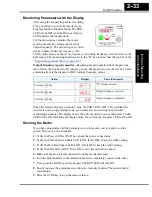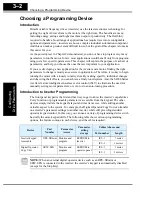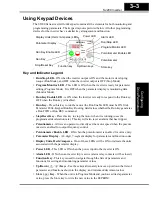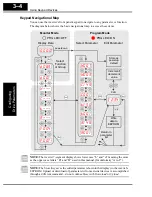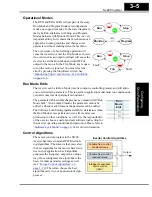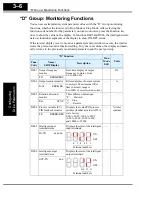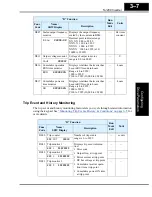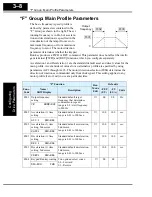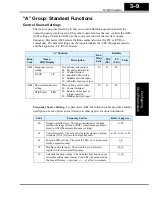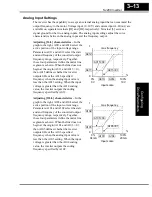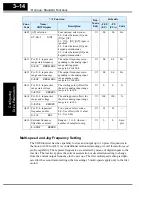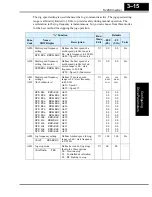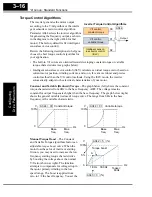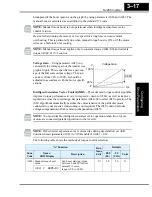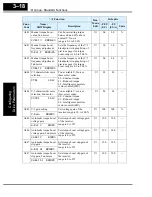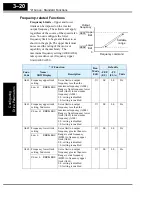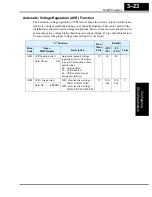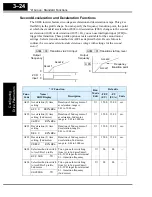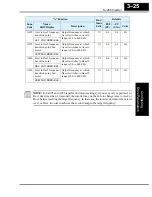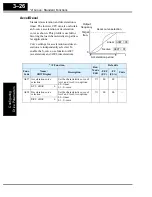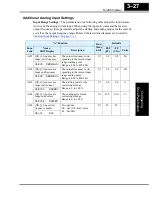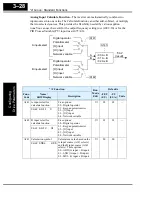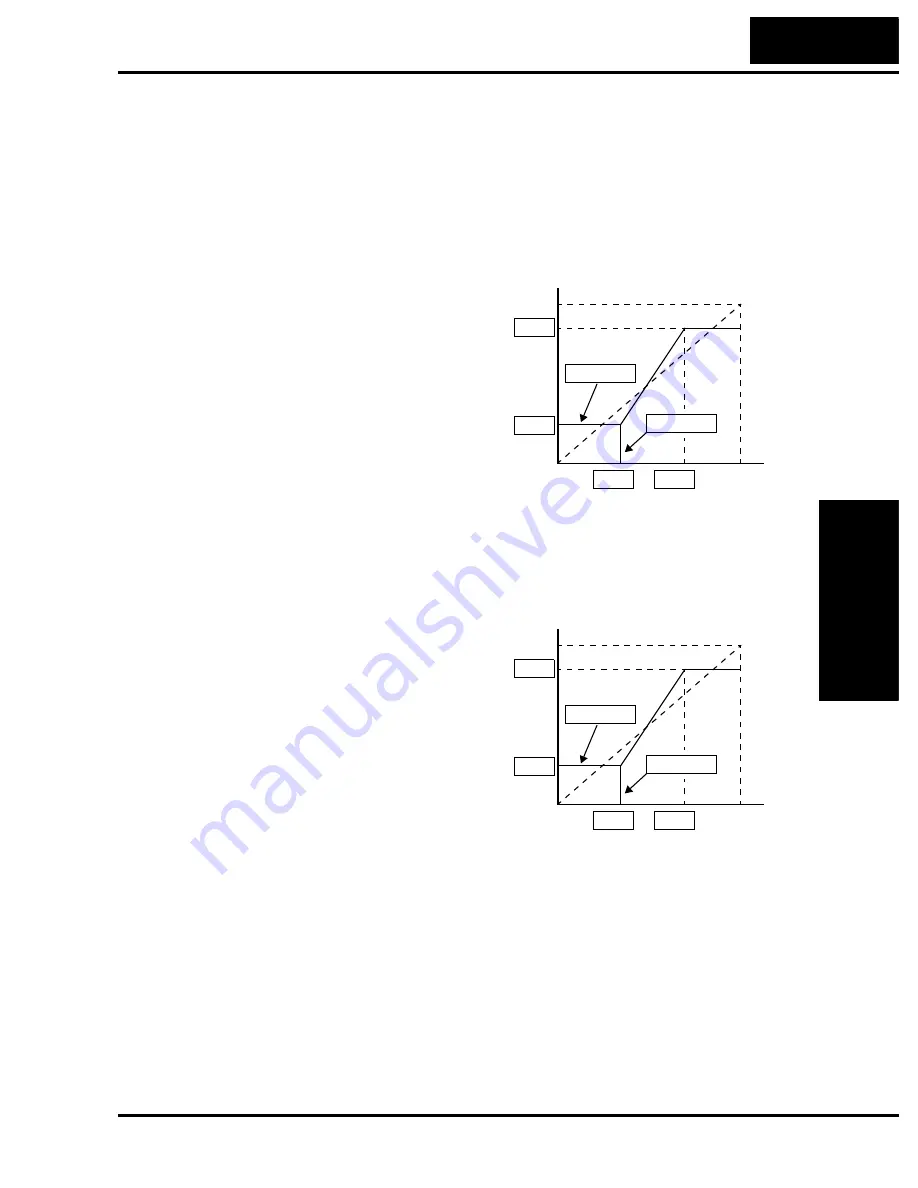
SJ200 Inverter
Conf
igur
ing
Dr
iv
e P
a
ra
m
e
ters
3–13
Analog Input Settings
The inverter has the capability to accept an external analog input that can command the
output frequency to the motor. Voltage input (0 –10V) and current input (4–20mA) are
available on separate terminals ([O] and [OI], respectively). Terminal [L] serves as
signal ground for the two analog inputs. The analog input settings adjust the curve
characteristics between the analog input and the frequency output.
Adjusting [O–L] characteristics – In the
graph to the right, A013 and A014 select the
active portion of the input voltage range.
Parameters A011 and A012 select the start
and end frequency of the converted output
frequency range, respectively. Together,
these four parameters define the major line
segment as shown. When the line does not
begin at the origin (A011 and A013 > 0),
then A015 defines whether the inverter
outputs 0Hz or the A011-specified
frequency when the analog input value is
less than the A013 setting. When the input
voltage is greater than the A014 ending
value, the inverter outputs the ending
frequency specified by A012.
Adjusting [OI–L] characteristics – In the
graph to the right, A103 and A104 select the
active portion of the input current range.
Parameters A101 and A102 select the start
and end frequency of the converted output
frequency range, respectively. Together,
these four parameters define the major line
segment as shown. When the line does not
begin at the origin (A101 and A103 > 0),
then A105 defines whether the inverter
outputs 0Hz or the A101-specified
frequency when the analog input value is
less than the A103 setting. When the input
voltage is greater than the A104 ending
value, the inverter outputs the ending
frequency specified by A102.
f
0%
0V
100%
10V
0
%
A012
A011
max frequency
A013
A014
A015=00
A015=01
Input scale
f
0%
04mA
100%
20mA
0
%
A102
A101
max frequency
A103
A104
A105=00
A105=01
Input scale

